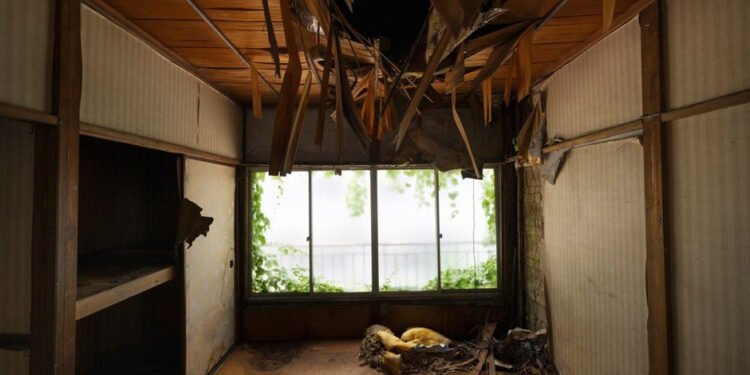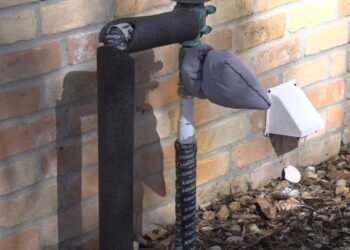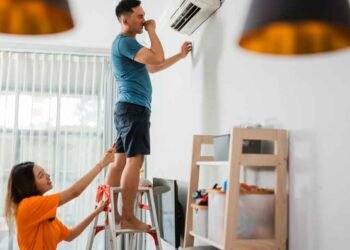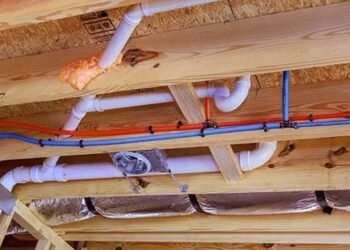Electrical fires are a serious concern for homeowners, often leading to devastating consequences. Even with modern safety standards, thousands of electrical fires occur each year, causing property damage, injuries, and even fatalities. It’s crucial to understand the common causes of these fires to take preventive measures.
We will explore five common causes of electrical fires in residential properties in this article. By understanding these risks and learning how to mitigate them, you can help protect your home and loved ones from potential disaster.
KEY TAKEAWAYS
- Regularly inspect and update your home’s electrical wiring.
- Avoid overloading circuits and use surge protectors.
- Maintain and properly use electrical appliances.
- Keep portable heaters away from flammable materials.
Faulty Wiring and Outdated Electrical Systems
Old or faulty wiring is a leading cause of electrical fires. Over time, wiring can degrade or get damaged, increasing the risk of short circuits and overheating. Signs that your wiring may be faulty include flickering lights, frequent circuit breaker trips, and discolored outlets.
Regular electrical inspections by licensed professionals are vital to identifying and fixing these issues. They can update your electrical system to meet current safety standards, replace worn-out wires, and ensure everything is up to code. Keeping your home’s wiring in good condition is essential for fire prevention; otherwise, you may find yourself needing fire damage restoration after a preventable incident.
Overloaded Circuits and Electrical Outlets
Overloading circuits and outlets is another common cause of electrical fires. Plugging too many devices into one outlet or using inappropriate extension cords can cause overheating. This is especially risky with high-power appliances like space heaters or air conditioners.
To prevent overloads, distribute your electrical load across multiple outlets and use surge protectors. Understand your home’s electrical capacity to avoid pushing it to its limits. If you notice warm or hot outlets, buzzing sounds, or tripped breakers, it might be time to re-evaluate your electrical usage and make necessary adjustments.
Misuse of Electrical Appliances
Improper use of electrical appliances can easily lead to fires. Using damaged appliances, placing them near water sources, or ignoring manufacturer instructions are common mistakes. These practices can cause overheating or short circuits, leading to a fire.
Proper appliance maintenance is crucial. Regularly clean and inspect your appliances, make timely repairs, and replace old or faulty ones. Safety tips include using appliances with auto shut-off features, unplugging them when not in use, and avoiding the use of extension cords for high-power devices.
Portable Heaters and Space Heaters
Portable and space heaters are convenient but can be dangerous if not used properly. These heaters cause a significant number of residential fires each year. The risk increases when they are placed too close to flammable materials like curtains, bedding, or furniture.
To use heaters safely, maintain a safe distance from anything that can catch fire. Never leave heaters unattended and ensure they have built-in safety features like tip-over and overheat protection. Considering safer alternatives, such as central heating systems or modern, safety-certified heaters, can also reduce fire risks.
Electrical Lighting Issues
Lighting fixtures and bulbs can become fire hazards if not used correctly. Problems can arise from using bulbs with the wrong wattage, outdated fixtures, or improper installation. Placing combustible materials near lighting fixtures, like drapes or paper, further increases the risk.
Preventive measures include using bulbs with the correct wattage, ensuring proper installation, and keeping flammable items away from light sources. Regularly check and maintain your lighting fixtures to avoid potential fire hazards. Simple steps like these can make a big difference in home safety.
In a Nutshell
Electrical fires pose a significant threat to residential properties, but many are preventable with proper awareness and precautions. By understanding the common causes—faulty wiring, overloaded circuits, misuse of appliances, portable heaters, and lighting issues—you can take steps to protect your home. Regular maintenance and mindful usage of electrical systems and devices are key to reducing fire risks and ensuring a safe living environment.
Sponsored Post












